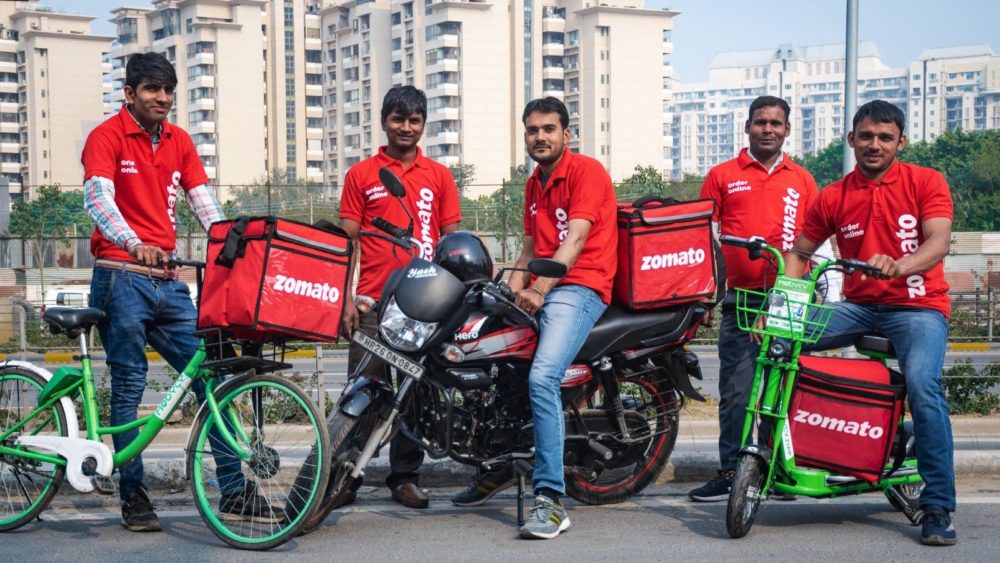Indian food delivery unicorn Zomato has reportedly raised $52 million in funding from US-based, emerging market-focused firm Kora Investments.
The app — which allows Indians to order meals from local restaurants and have them delivered — has raised a total of $270 million this year including the injection from Kora, according to Mint. That sum is part of a larger, ongoing funding round expected to close at $600 million.
China-India tension
Last month, it was reported that Zomato had raised $160 million from MacRitchie Investments — an affiliate of Singapore sovereign fund Temasek — and New York hedge fund Tiger Global.
Zomato founder and CEO Deepinder Goyal recently told employees that the Gurgaon-based company is aiming to go public in the first half of 2021, which may go some way toward explaining the apparent funding rush.
There’s also the fact that one of Zomato’s biggest backers is Chinese fintech giant and Alibaba affiliate Ant Group.
Their relationship may become increasingly untenable amid growing geopolitical tensions between China and India, which has seen the latter ban popular Chinese apps and introduce toughened foreign investment rules for Chinese entities.
According to Mint, Zomato has so far received only $50 million of the total $150 million that Ant pledged to invest in the company back in January.
Zomato’s other investors include Uber — which acquired a stake after selling its Indian Uber Eats business to the company in a deal worth $350 million earlier this year — as well as German food delivery giant Delivery Hero, Xiaomi-linked Shunwei Capital, and UK firm Baillie Gifford.
Pandemic pay-off
Another factor is the continuing Covid-19 pandemic, which has had a mixed impact when it comes to on-demand food delivery in India. Zomato and other meal delivery apps initially saw a decline in orders after the Indian government enforced a strict nationwide lockdown in late April, with it and archrival Swiggy laying off hundreds of drivers and other employees.
However, the startup said the slowdown actually helped it get its unit economics in better shape. It also forayed into on-demand grocery delivery — a segment which, in contrast, seemed to see a sharp upswing in demand as Covid-19 took hold in India. (Zomato has since indicated that it plans to exit the e-grocery business.)
Citing data from its internal brand intelligence team, e-grocer BigBasket revealed it experienced an 84% increase in new customers between March and August, with retention 50% higher compared to pre-pandemic levels.
Visits to its website and app were up 55% during the same period, while the number of households served increased by 44%. BBdaily — the platform’s next-day delivery service for daily essentials such as milk and fresh produce — experienced growth of 139%.
Bengaluru-based Dunzo reported a tripling in demand for food, beverages, and perishable goods back in April, not long after the Indian government first implemented a nationwide lockdown in an attempt to stem the early spread of the virus. This likely helped the startup land $28 million in a recent Google-led funding round.
Funding on upward trend
According to AgFunder’s 2020 India Agrifood Startup Investing Report, Restaurant Marketplaces and eGrocery — two of the main food e-commerce categories, as defined by AgFunder — witnessed a sharp drop in funding during the last financial year after dominating foodtech investment over the past five years. [Disclosure: AgFunder is AFN‘s parent company.]
Together, the two categories accounted for close to 37% ($392 million) of the total funds raised by agrifood startups in India during the financial year running April 2019 to March 2020. This was down from 82% in the previous year, which had featured a handful of large outlier deals involving more mature players.
Restaurant Marketplaces — mainly consisting of apps which allow users to order meals from third-party vendors — saw a massive 82% decline in investment. Nevertheless, it remained the single most-funded category in India, with $276 million secured across six deals.
Walmart and Flipkart just invested $30 million in Indian farmer-to-business platform Ninjacart. Read more here
As the two biggest companies in the space, Zomato and Swiggy raised $263 million of that total between them (including Ant’s as-yet unfulfilled commitment to Zomato.) This, however, paled in comparison to the amounts they’d raised in previous years. A more pessimistic economic outlook, even prior to Covid-19, meant investors were less willing to pull out their checkbooks amid increasingly fierce competition, cash-burning subsidy wars, and thin-to-nonexistent margins.
But the recent investments from Temasek, Tiger Global, and now Kora seem to suggest that things may now be back on track for food and grocery delivery startups – and the trend is not just present in the Indian market.
As highlighted by AgFunder’s recently released Agrifoodtech 2020 Mid-Year Investment Review, eGrocery was the top-funded category worldwide between January and June this year, pulling in $1.8 billion across 76 deals and accounting for 20% of all agrifood venture funding. Restaurant Marketplaces netted $960 million across 26 deals, with the highest median deal value of any category at $20 million.
Got a news tip? Email me at [email protected]





